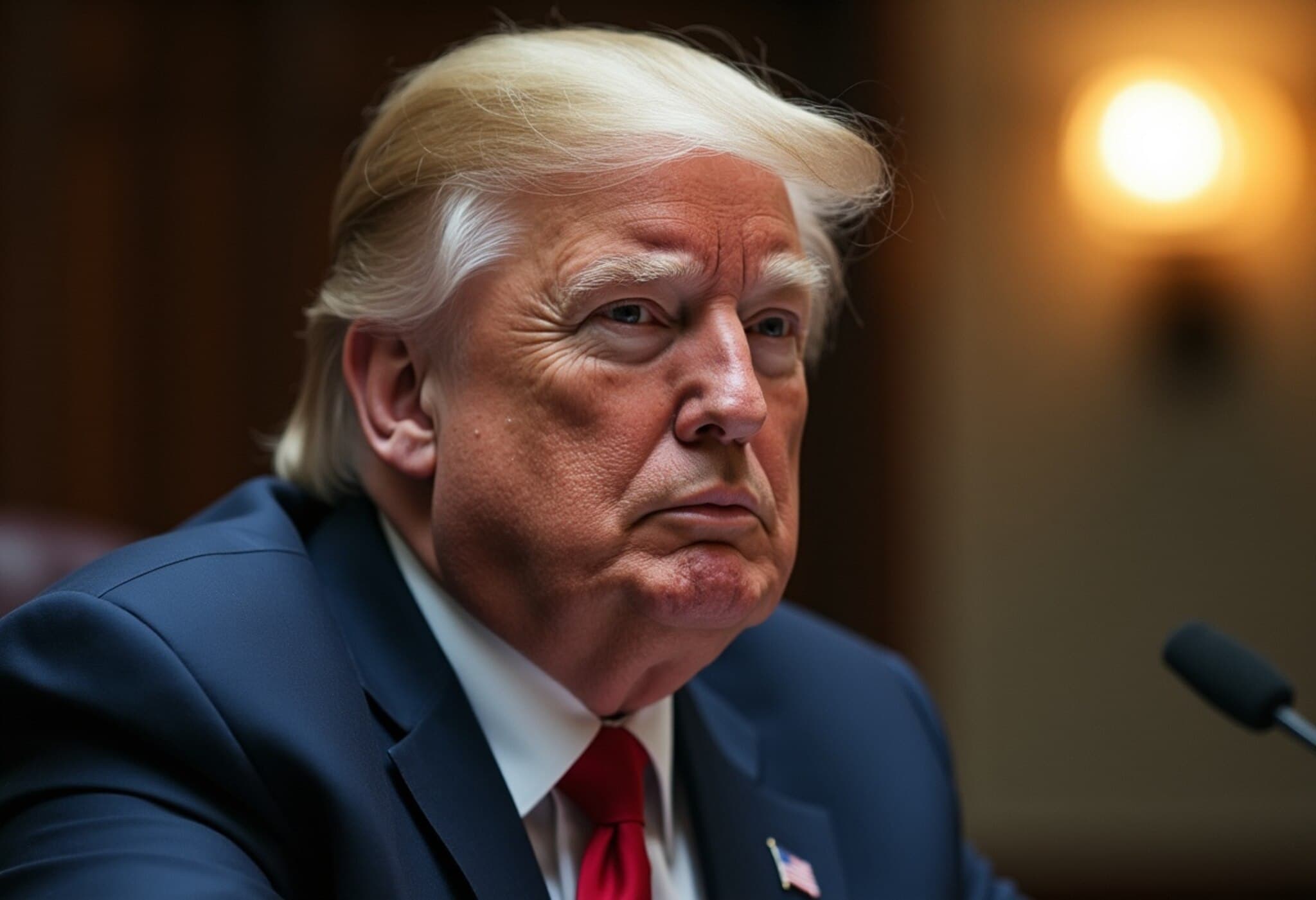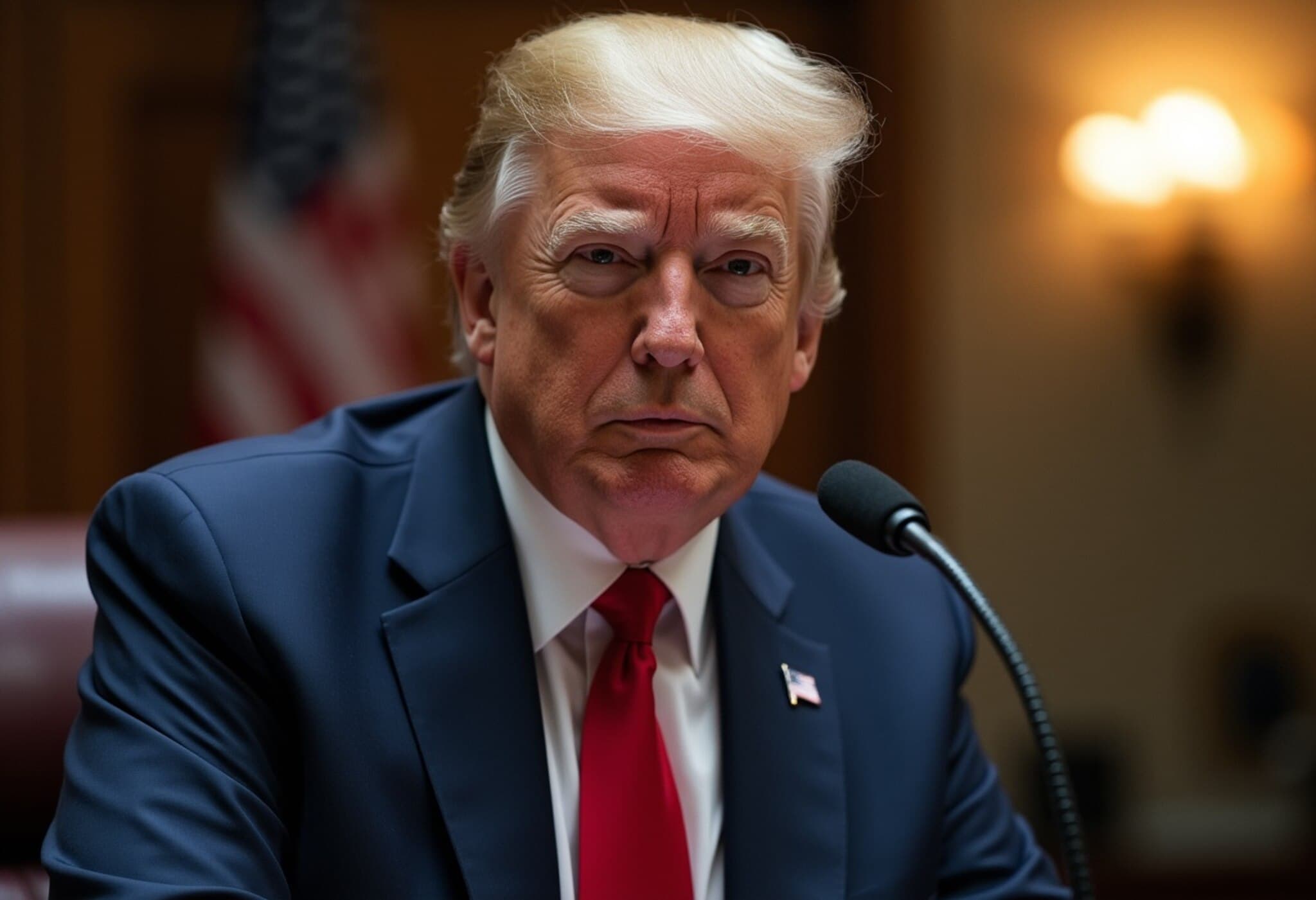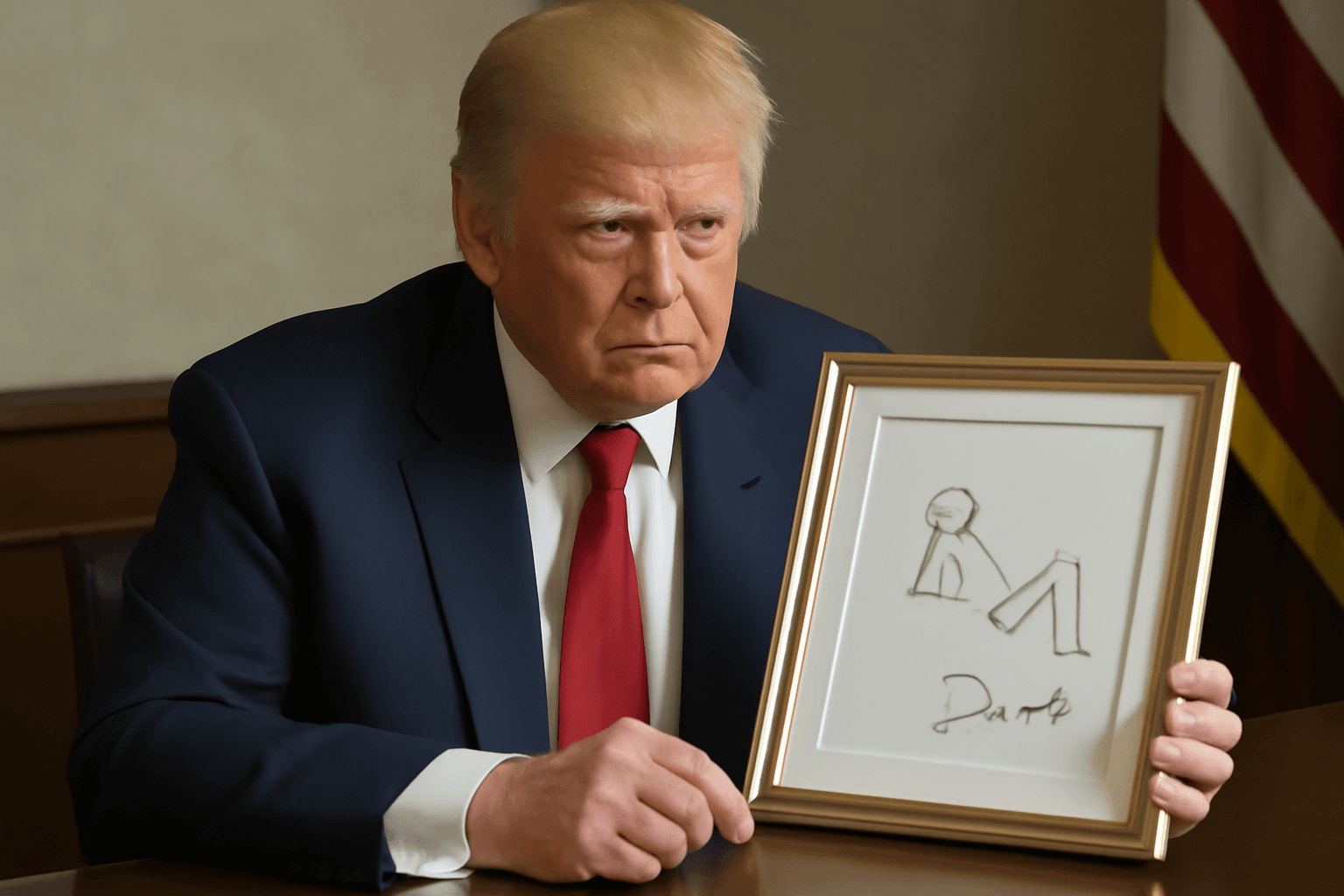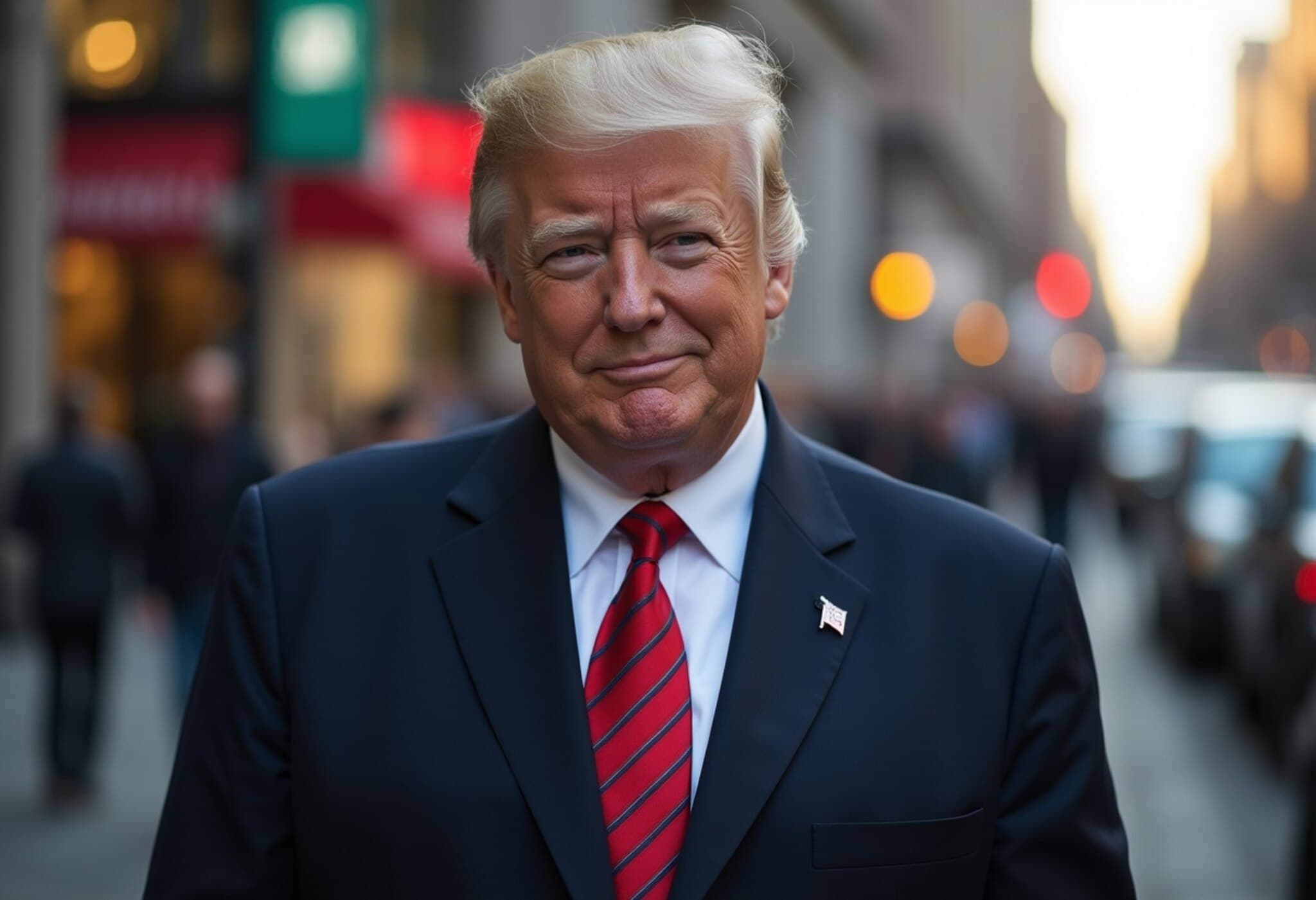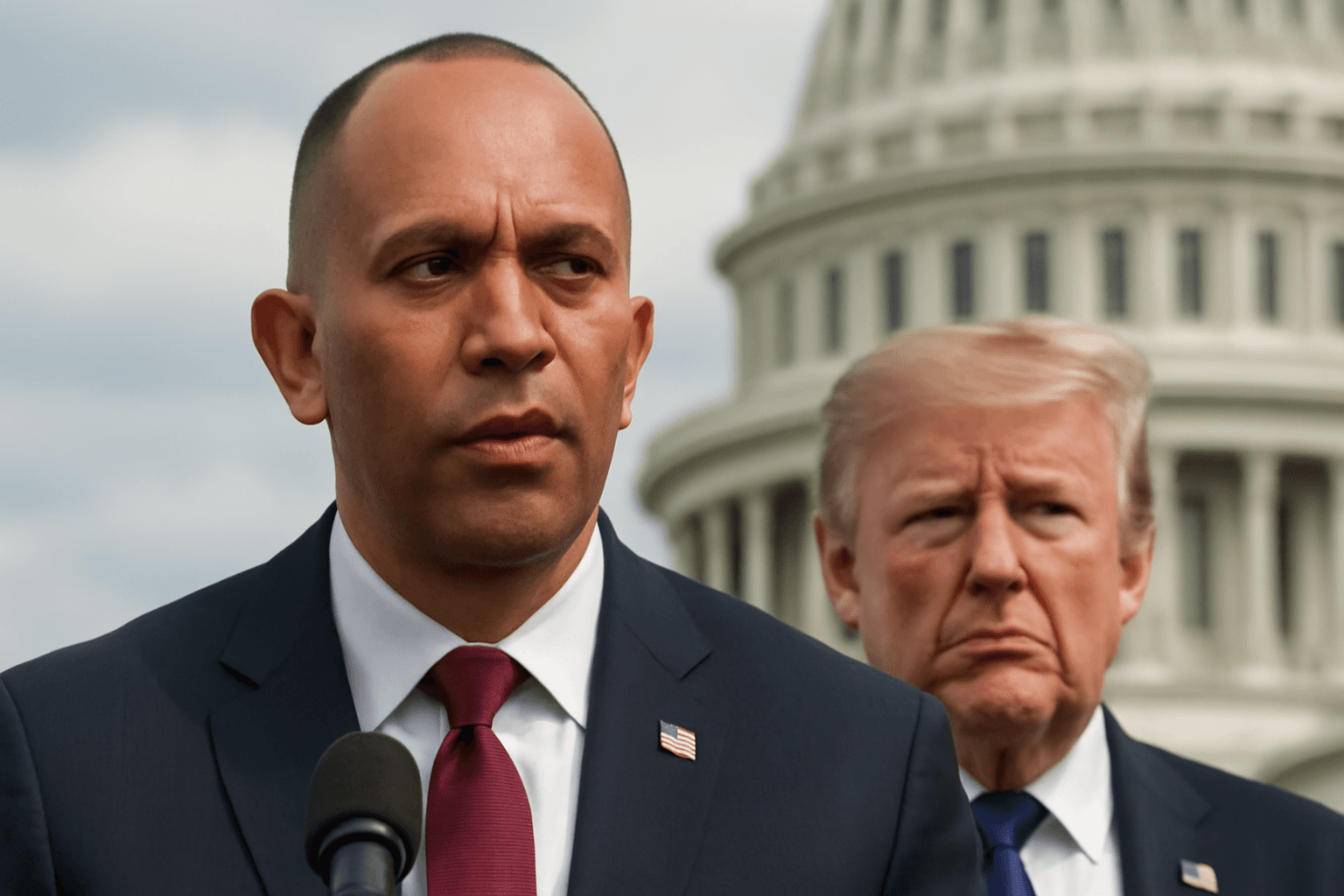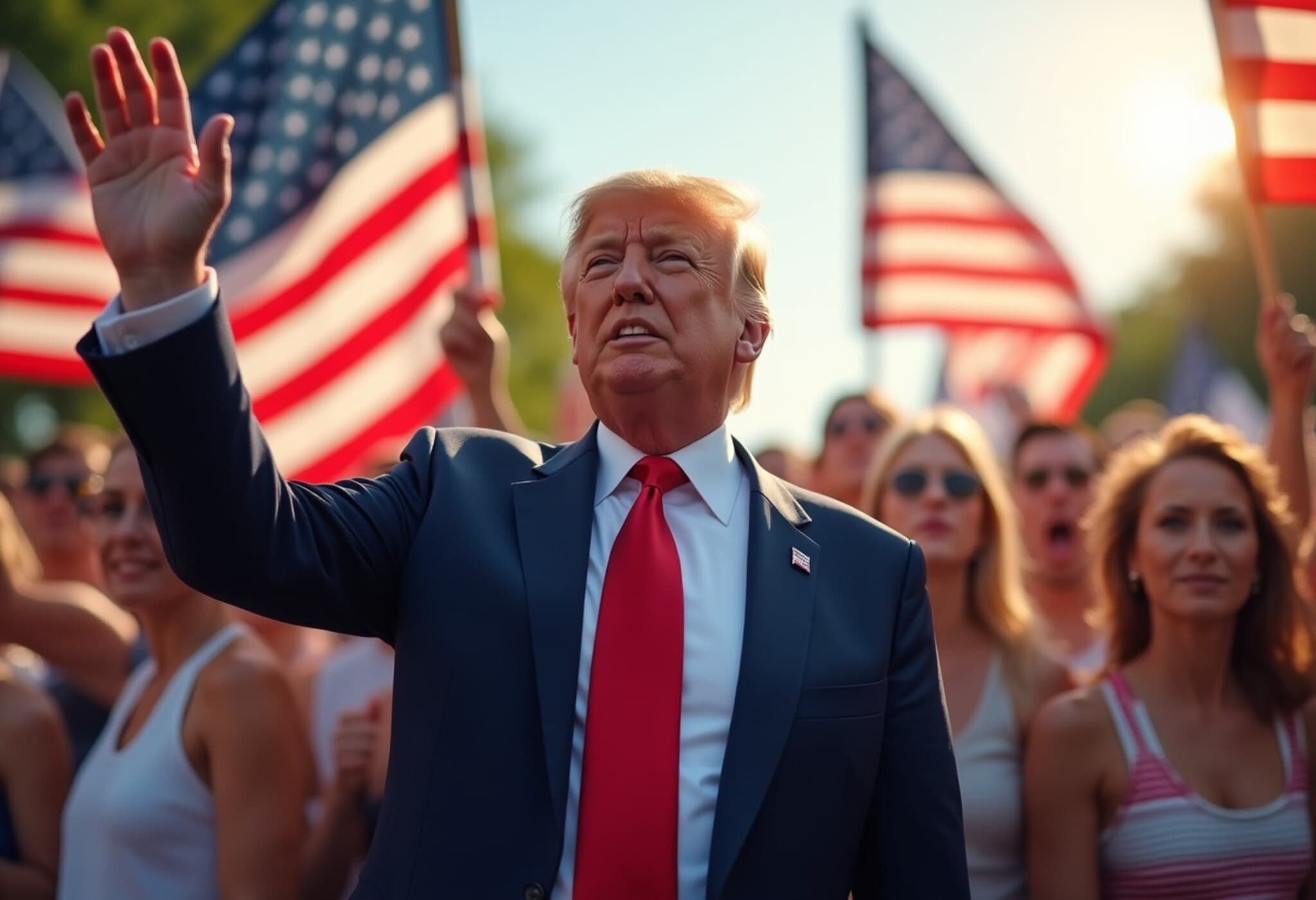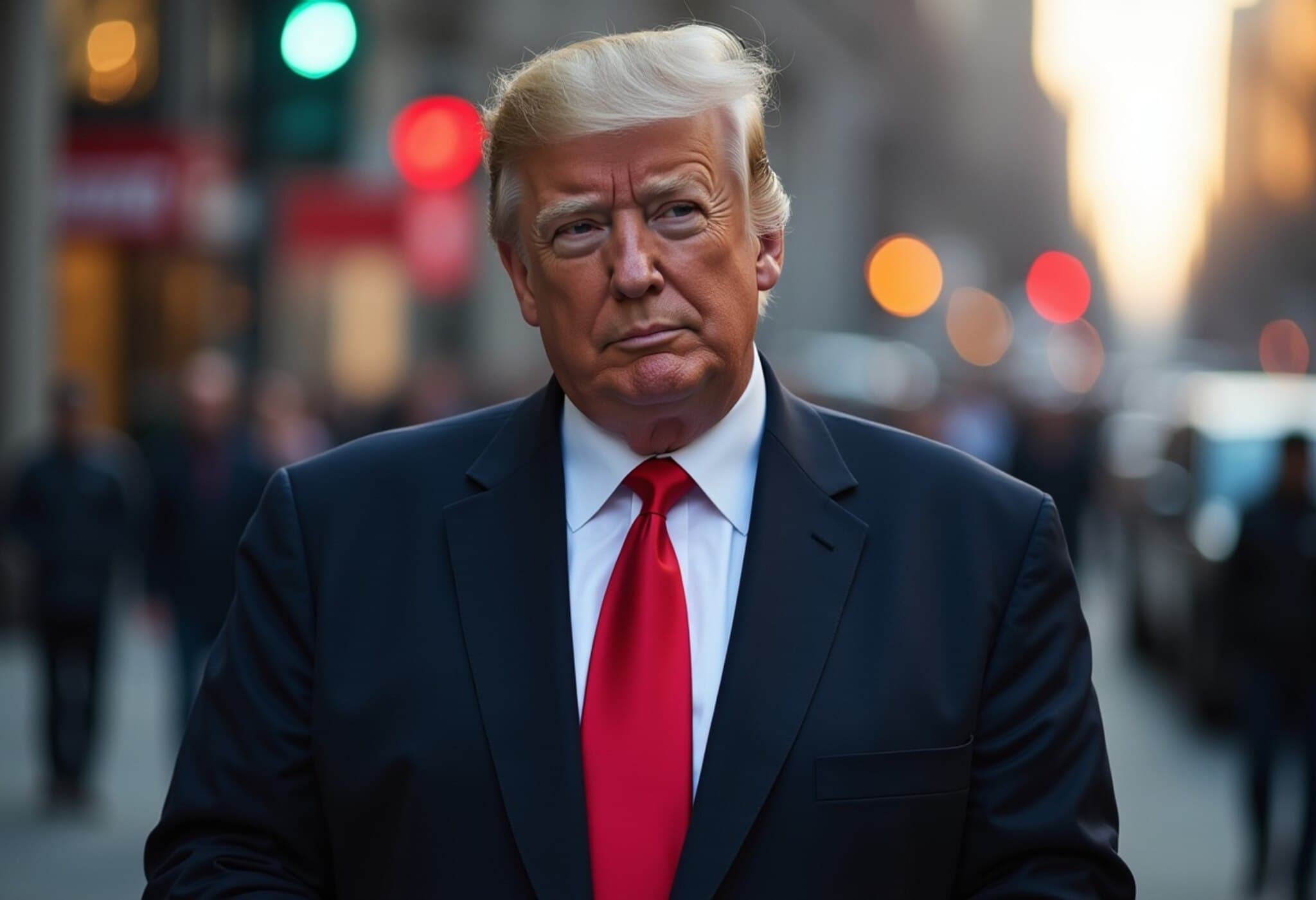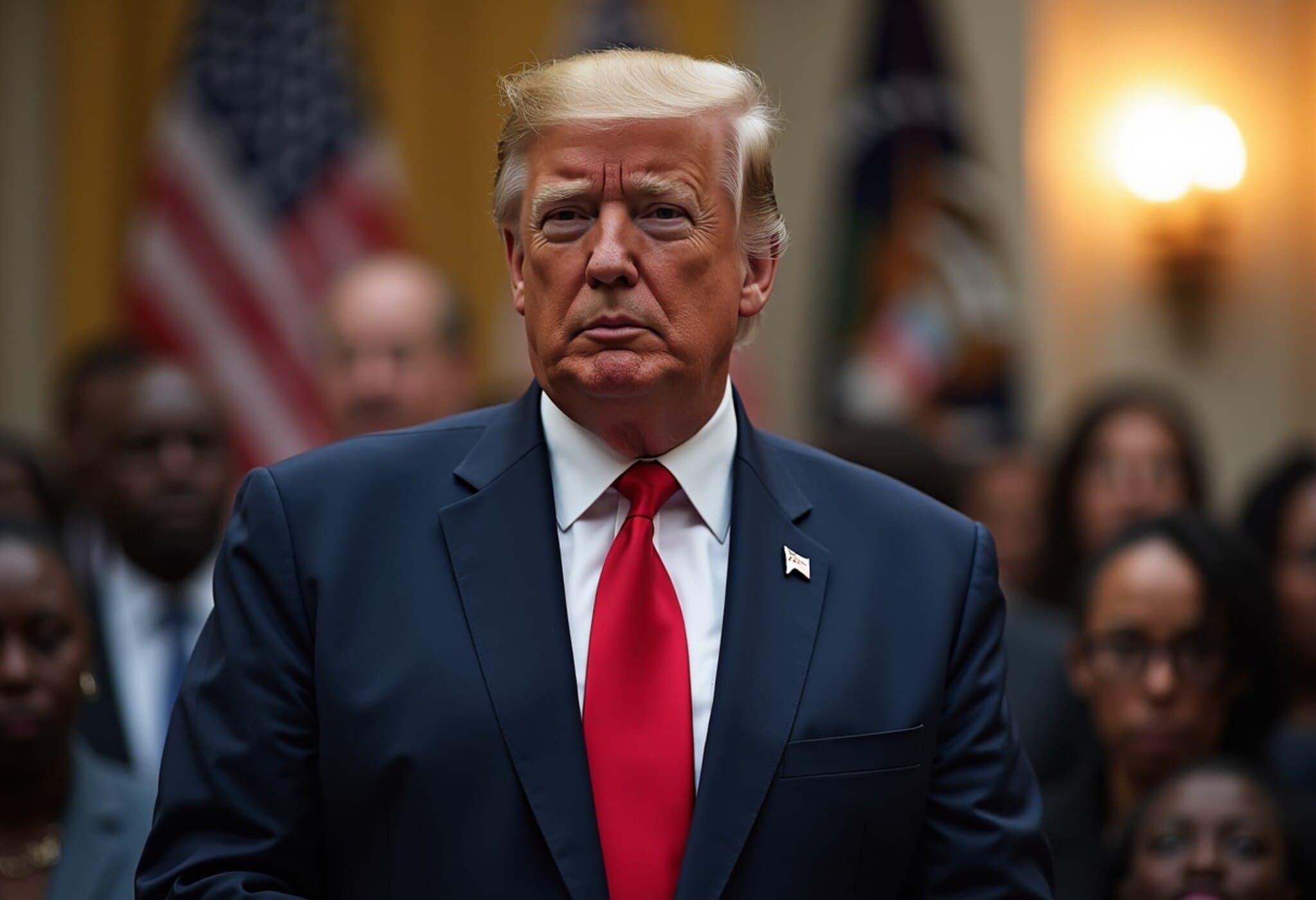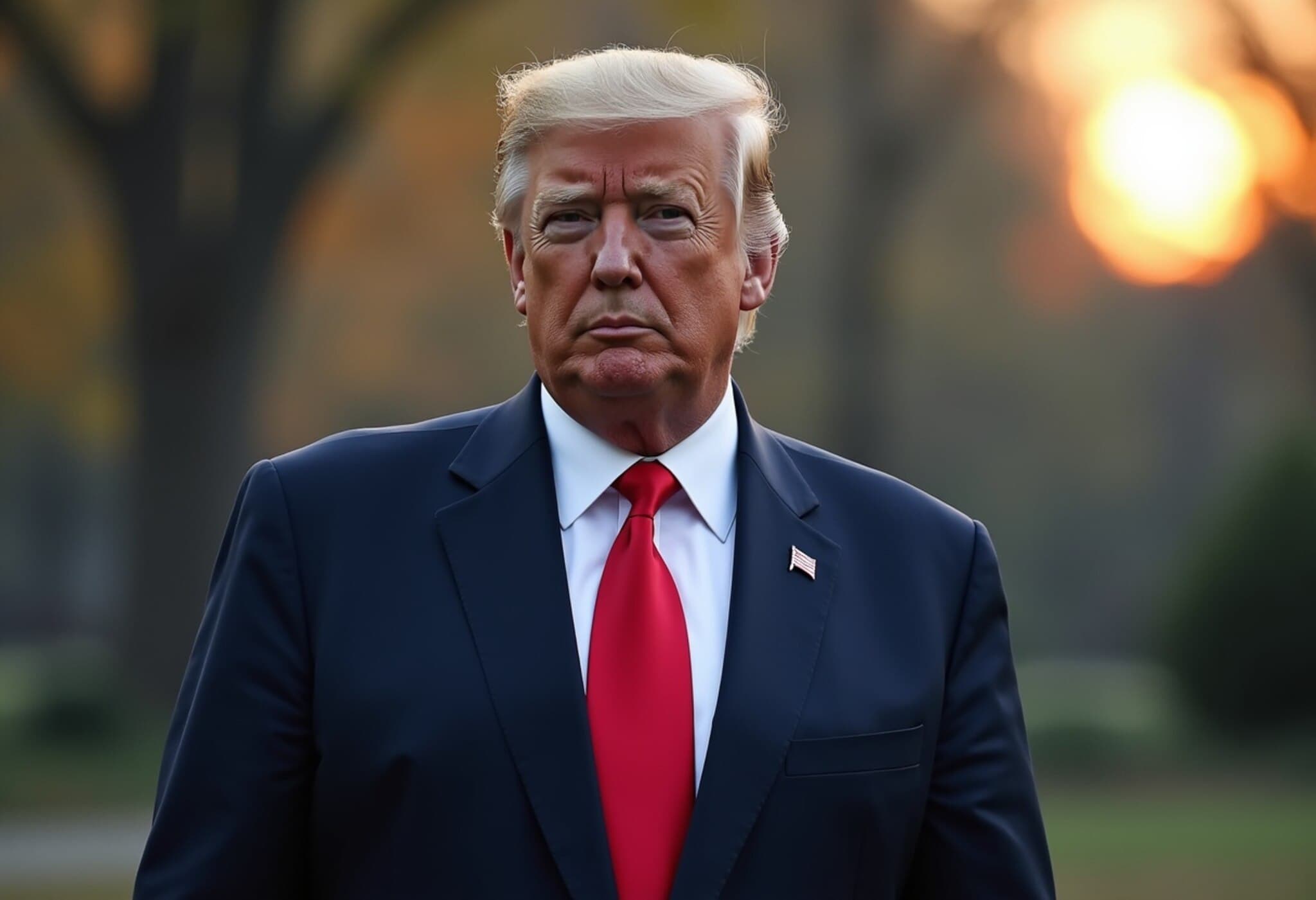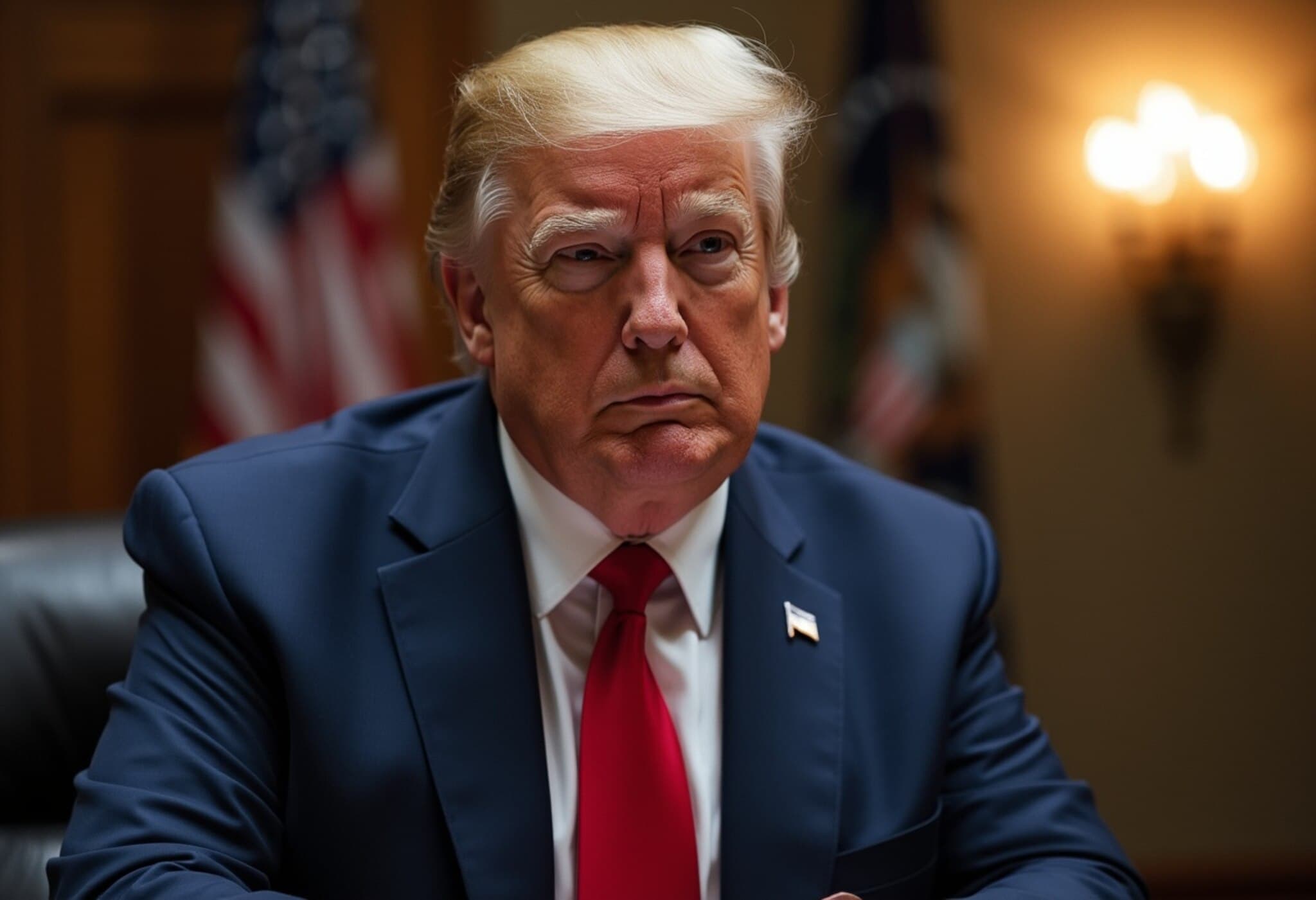Alleged Epstein Birthday Album Sparks New Controversy Surrounding Trump
In a recent revelation by The Wall Street Journal, an album commemorating Jeffrey Epstein’s 50th birthday in 2003 reportedly contains a letter with former President Donald Trump’s name. This leather-bound collection, allegedly curated by Epstein associate Ghislaine Maxwell, features greetings, drawings, and notes from Epstein’s vast network of acquaintances, including Trump, billionaire Leslie Wexner, and attorney Alan Dershowitz.
The Contents and the Contested Letter
The letter attributed to Trump is distinctive: typewritten text within the outline of a nude woman sketched in bold marker. It concludes with the cryptic lines, “Happy Birthday — and may every day be another wonderful secret.”
Trump promptly denied any direct involvement with the note or the illustration when approached by the Journal. He called the story “fake” and insisted, “I never wrote a picture in my life. I don’t draw pictures of women. It’s not my language. It’s not my words.” He also threatened legal action against the publication if the story was published.
An Insight into the Album's Origins
The album was crafted by Herbert Weitz, a New York bookbinder whose 2003 portfolio lists Epstein as a client. Although Weitz passed away in 2020, the leather-bound volume remains a compelling artifact. Alongside Trump’s letter, other contributors wrote messages with notable undertones:
- Leslie Wexner: The former Victoria’s Secret mogul and Epstein’s ex-financial manager included a note coupled with a suggestive sketch, though Wexner has since denied any continuing connection with Epstein since 2007.
- Alan Dershowitz: Contributed a satirical mock magazine cover titled Vanity Unfair, featuring provocative headlines; he stated he could not recall the exact content due to the passage of time.
This discovery of the album, known to Justice Department officials amid their investigations, raises key questions about the scope of evidence reviewed during the ongoing legal and political assessments surrounding Epstein and his associates.
Trump and Epstein: A Background of Controversy
Donald Trump’s association with Epstein has long been under public scrutiny, spotlighting the complex web linking powerful figures to Epstein’s illicit activities. Epstein’s arrest in 2019 on federal sex trafficking charges and subsequent death in custody intensified calls for transparency about his connections.
Notably, following inquiries about the birthday letter, Trump dismissed some Epstein-related files as “made up” by previous administrations and FBI leadership. He emphasized that Attorney General Pam Bondi would determine which documents might be credible for public release.
The Epstein files have become a politically charged issue. Earlier releases by the Justice Department, overseen by Bondi, revealed limited new information, with officials citing the need to protect victims’ identities. FBI Director Kash Patel assured the public that “no stone will be left unturned.”
The debate intensified with public figures like Elon Musk insinuating that critical Epstein documents implicating Trump might be deliberately withheld by federal agencies. Despite such claims, Justice Department statements following exhaustive reviews have denied the existence of incriminating client lists warranting broader disclosure.
Bipartisan Congressional Demands for Transparency
Amid growing mistrust, Democrats on the House Judiciary Committee have urged Republican leadership to investigate how the Trump administration handled the Epstein files. Calls for hearings and subpoenas targeting key officials underscore the tension within Washington over accountability and the public’s right to know.
Trump himself appeared dismissive of ongoing inquiries. When questioned about Epstein at a July 8 Cabinet meeting, he retorted, “Are people still talking about this guy, this creep? That is unbelievable. Do you want to waste the time?”
Why It Matters: Legal and Political Implications
The resurfacing of Epstein-linked materials involving powerful individuals like Trump complicates the legal landscape amid heightened political polarization. Beyond headline-grabbing allegations, these revelations prompt deeper reflection on:
- The adequacy of current investigative processes and how transparent they are to the public.
- The role media plays in shaping narratives when documents and evidence are contested.
- The consequences for political figures embroiled in controversies rooted in decades-old associations.
As the story unfolds, the public’s demand for clear answers grows louder—not only about what lies in the Epstein files but also about how justice and accountability are pursued at the highest echelons.
Editor’s Note
This latest episode in the Epstein saga illustrates the complex interplay of power, secrecy, and public scrutiny. While Trump’s denial and legal threats add another layer of dispute, the presence of such an album—if authenticated—opens fresh avenues for understanding how influential networks may have operated under cloak and dagger. The challenge for journalists, policymakers, and the public remains: to discern fact from fabrication and ensure that no critical evidence remains buried in political crossfires.
How will ongoing investigations balance victims' privacy against the public’s right to transparency? And can political rivalries be set aside to pursue impartial justice? These questions must guide the next steps.

